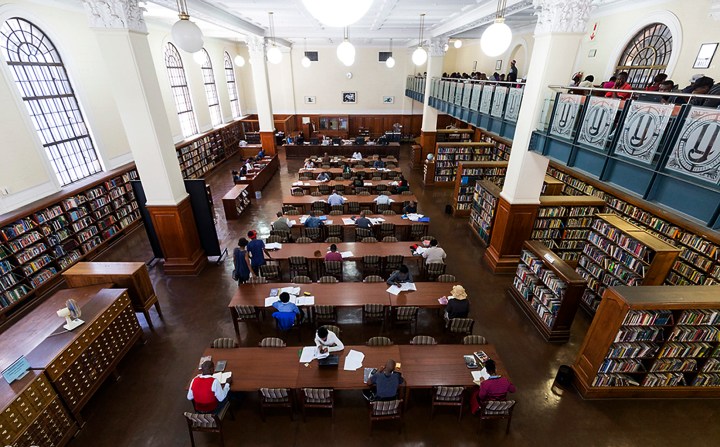MAVERICK CITIZEN OP-ED
Copyright Bill is a gateway to accessible knowledge and creativity – not American roulette

In the Covid-19 lockdown situation, the Copyright Bill’s provisions for better access to information for education, research, libraries and archives, museums and galleries, and people with disabilities are desperately needed.
Collen Dlamini, the author of the Daily Maverick Opinionista “Copyright Bill: We dodged one bullet – we needn’t play American roulette” (27 May 2020), has once again shown his lack of understanding of the fair use and other provisions in the Bill.
Fair use is not a free-for-all mechanism to copy everything for free. Yet, he perpetuates the image of fair use as being a “piracy tool” that will damage the publishing industry and destroy our economy. His “dodging the bullet” and “American roulette” analogies are hyperbolic and mischievous.
Fair use has been enjoyed by the US and at least 10 other countries for many years. There is no evidence to show that the publishing and entertainment industries in any of those countries have suffered because of fair use. In fact, it has been very evident for years in the US that fair use is the great facilitator for creativity, innovation and access to information in general.
It has contributed to the US economy immensely, creating the richest and largest publishing, and entertainment industries in the world. Except for mercenary intentions, why would anyone want to deprive South Africa of benefiting from similar provisions which would help grow its sluggish economy and improve the lives of all its citizens?
The problems that educational institutions are currently experiencing with our 42-year-old copyright law could easily be resolved by the provisions in the Bill.
The comments about the negative effect that the Bill will have on the economy cannot be substantiated. The real impact and effects of any piece of legislation can only be tested sometime after it has been enacted and implemented. A PwC report in South Africa attempted to provide a forecast for the publishing industry, but a similar report in Australia was totally debunked by the Australian Productivity Commission.
Our current copyright law is outdated and clearly not addressing the needs of our country. The Farlam Commission Report 2011 confirmed that about 70% of monies collected for copyright fees for educational material flows out of the country to developed countries. So how does this help or grow the South African economy? How does this outflow of currency benefit our South African authors and creators, when the main beneficiaries are international publishers? No wonder the Office of the United States Trade Representative (USTR) and EU do not want the status quo to change.
In the Covid-19 lockdown situation, the Bill’s provisions for better access to information for education, research, libraries and archives, museums and galleries, and people with disabilities are desperately needed. It is absurd to claim that the Bill should be rejected because of the Covid-19 situation or any other reason at this stage. If it wasn’t clear before how important a progressive and flexible copyright system is for South Africa, it is very clear right now.
The problems that educational institutions are currently experiencing with our 42-year-old copyright law could easily be resolved by the provisions in the Bill. The suggestions that the Bill is not in line with international treaties and our Constitution have been debunked in research findings, a senior counsel’s opinion, WIPO research reports and treaties, various international and local documents, and letters to the president by many organisations in South Africa and abroad. If there were any constitutional concerns, surely President Cyril Ramaphosa would have sent the Bill back to Parliament in 2019? (See the Q&As here for clarity on many of the issues raised about the Bill.)
The expectations of the USTR, the EU, and the Copyright Coalition of South Africa, for the president to withdraw or redraft a Bill approved by Parliament are irresponsible and in conflict with our Constitution, Section 79 (1), which clearly states that “the president must either assent to and sign a Bill passed in terms of this Chapter or, if the President has reservations about the constitutionality of the Bill, refer it back to the National Assembly for reconsideration”.
Ramaphosa has only two choices as above. He may not be influenced, pressured, or forced to refer the Bill back for redrafting or withdrawal. He has already had the Bill in his office for 14 months. He has had ample time to peruse all the submissions, letters, opinions and other documentation in his possession, and to apply his mind to the Bill. There is no excuse for any further delay.
Mr. President, please sign the Bill as a matter of urgency. DM/MC
Denise Nicholson is Scholarly Communications Librarian at the University of the Witwatersrand, Johannesburg.



















 Become an Insider
Become an Insider